ORBEYE tech in the Beacon
Neurosurgeons in the Beacon Hospital are now the first in Ireland to use the 3D camera system ORBEYE when operating.
The technology has extremely powerful magnification and illumination which allows surgeons to see fine details such as the smallest nerves and blood vessels in deep parts of the brain.
When using traditional operating microscopes, neurosurgeons can spend many hours with their neck bent forward and often in awkward positions but using Orbeye makes their work more comfortable by enabling the entire surgical team see exactly what the surgeon is seeing on a large 3D screen in the operating room.
This makes it an ideal tool for training future neurosurgeons.
“This is an extremely promising development for neurosurgery in Ireland and worldwide,” says Professor Mohsen Javadpour, consultant neurosurgeon says. CEO of Beacon Hospital Michael Cullen add that the technology is a “game changer”.
Easter is almost upon us and Easter eggs will be a big feature, lockdown or no lockdown, but what is good policy around indulging in these chocolate-rich treats?
According to Safefood the very small Easter eggs are equivalent to two standard bars of chocolate and the big ones equivalent to 10 bars of chocolate so children – and adults – can be getting a serious sugar fix on Easter Sunday. Easter eggs will often come with extra bars or sweets in the box too so you’re talking a lot of chocolate. With sugar overload leading to indigestion and weight gain dietitians have this advice:
If it’s not an Easter egg you like, give it away.
If your child has several eggs, keep them out of sight so they’re not tempted to over-indulge.
Have chocolate as a family dessert in the days after Easter to use up the eggs.
Get lots of exercise over Easter.
Ask relatives for a book or voucher instead.
Which type of chocolate to opt for?
Dark chocolate is better for you than milk chocolate. It is a good source of antioxidants and minerals which promote good health. It can contain up to 70 or 80% cocoa solids and is made from the seeds of cacao tree.
Milk chocolate is sweet chocolate containing milk powder or condensed milk and must contain a minimum of 25% cocoa solids.
White chocolate contains no cocoa solids. It contains cocoa butter, sugar and milk. In cheaper varieties the cocoa butter is often replaced by vegetable fats.
Source: Irish Nutrition and Dietetics Institute
Visceral fat is a red flag
Menopausal? Women who accumulate abdominal fat quickly during menopause are at greater risk of heart disease even if their weight is stable. That’s according to a recent US study at the University of Pittsburgh’s Graduate School of Public Health.
“Our research is increasingly showing that it isn’t so important how much fat a woman is carrying as it is where she is carrying that fat,” says the senior author of the report which was published in the journal – Menopause.
Three hundred and sixty-two women with an average age of 51 had their visceral adipose tissue – fat surrounding the abdominal organs – measured by CT scan and the thickness of the internal carotid artery lining in their neck measured by ultrasound. Carotid artery thickness is an early indicator of heart disease.
The team found that for every 20% increase in abdominal fat, the thickness of the carotid artery lining grew by 2%.
That was independent of overall weight, BMI and other traditional risk factors for heart disease.
Saad Samargandy, a doctoral student involved in the research explained that fat that hugs the abdominal organs is related to greater secretion of toxic molecules that can be harmful to cardiovascular health.
They recommend that as well as calculating a woman’s body mass index (BMI) at check-ups, her waist measurement should be taken also.
“Through this 25-year study we have found a clear link between growth in abdominal fat and risk of cardiovascular disease that can be tracked with a measuring tape but could be missed by calculating BMI. If you can identify women at risk, you can help them modify their lifestyle and diet early to hopefully lower that risk,” the research team say.

Waterford camogie captain Niamh Rockett is helping to raise awareness around arthritis that affects young people
Waterford camogie captain, Niamh Rockett, is helping to raise awareness around arthritis that affects young people.
She was diagnosed with arthritis at the age of 16, a time when she was playing camogie, hockey, football and soccer. Niamh says that her condition has made her more aware of not taking opportunities for granted.
“It also makes me appreciate things more,” she says. “Your mindset is really important. You need to surround yourself with positive people who won’t put limitations on you.”
She is involved in Arthritis Ireland’s Don’t Give Up campaign which has been developed to highlight the importance of physical activity and mental wellbeing in living with a chronic condition.
Almost 1,200 children and young people have juvenile idiopathic arthritis (JIA) in Ireland.
This autoimmune condition can cause swollen and painful joints, impaired co-ordination, fatigue, high fever, rashes and can also affect other organs including the eyes.
“Physical activity and sport are really important in maintaining muscle and joint function as well as mental health and wellbeing,” says Gráinne O’Leary, chief executive of Arthritis Ireland. “We’re grateful to Niamh for sharing her story. I have no doubt that it will inspire other young people with arthritis to take part in and pursue their sporting dreams. Don’t give up – that’s the important thing.”
See www.arthritisireland.ie for more information or telephone their helpline 0818 252 846
Self-test kit for COVID-19
While there has been no authorisation for self-testing for COVID-19 in Ireland as yet – it has to be approved first by the Health Products Regulatory Authority (HPRA) – one company, MyBio, which has submitted an application to HPRA says that it could have the rapid antigen self test on the shelves within weeks of approval.
It is a simpler test than the HSE’s PCR test in that the swab doesn’t have to be taken so far up the nose.
“They are simple and more comfortable to use as the test collects the sample from the front area of the nose instead of the nasopharynx,” says Dr Linda Nolan, managing director of MyBio. “By following simple instructions, people can perform the test at home and have results in 15 minutes. These tests are already in widespread use in Germany. We have them warehoused and ready to be on the shelves in retail outlets across Ireland within weeks once we have approval from the HPRA.”
She points out that these tests could play a key role in stopping asymptomatic spread of the virus in particular and that they are being used at home in the UK by parents for repeated testing of school going children.
Holistic healthy eating app launched
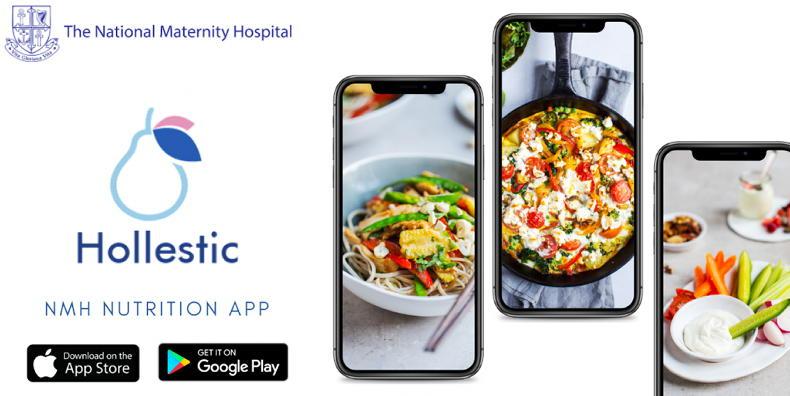
The National Maternity Hospital has launched a healthy-eating app called Hollestic, available for free on the App store and Google Play Store.
The app’s aim is to improve nutrition and pregnancy outcomes.
“Hollestic aims to act as a guide, support and motivator for women and their families, helping to ensure dietary needs are met during pregnancy and giving baby the best nutritional start in life,” says Dr Eileen O’Brien, senior dietitian at the National Maternity Hospital in Holles Street, Dublin.
The app looks and works differently than existing pregnancy apps by providing a pregnancy tracker and tips specific to each trimester as well as providing nutritionally dense recipes which are backed by science.
Free bereavement resource pack
The Irish Hospice Foundation (IHF) has launched a free bereavement resource pack called Support For Grieving in Exceptional Times.
It includes advice and guidance on acknowledging and coping with grief from a COVID-19 death, what to expect when planning a funeral as well as helping children deal with loss and grief.
It includes all the resources developed as part of the IHF’s Care & Inform Programme which was specially created to respond to the needs of those facing dying, death and bereavement during COVID-19 restrictions.
Tips for quitting smoking
The Irish Heart Foundation has these seven tips to give up smoking.
1 Change your routine: If you’re used to a cigarette after a meal, try chewing some sugar-free chewing gum or go for a walk.
2 Reduce your caffeine and alcohol: these will affect you more than when you were a smoker.
3 Learn to deal with cravings: withdrawal symptoms are positive signs that your body is ridding itself of toxins. Get help and use smoking cessation tools to improve your chances of success.
4 Get regular exercise: this will help you deal with cravings. Aim for 30 minutes five days a week.
5 Make your home and car smoke-free.
6 Choose healthy snacks: snack only when hungry and choose healthy snacks like fruit, natural yoghurt or plain popcorn.
7 Avoid using sweets, cakes and biscuits as substitutes for cigarettes: eat three meals a day and eat breakfast – this has been shown to help quitting smoking.
Health conditions your dentist can detect
Dentists can notice many symptoms by examining your teeth and gums so dental check-ups are very important on many levels.
Diabetes – gum disease, dry mouth, poor healing and oral infections, bone loss, bad breath and bleeding gums.Heart disease – gum disease and inflammation.Oral cancer – mouth ulcers that don’t heal, red or white patches in the mouth, unexplained loose teeth, difficulty swallowing or chewing.Sinus infection – can be mistaken for toothache.Stress – inflammation of the gums, ulcers, cold sores, teeth grinding.Osteoporosis – tooth loss or gum disease, decrease in bone density.Anaemia – change in colour of gums and tongue.Vitamin deficiency – gum disease, increased infections, delayed healing and loss of sensation.Source: Dr Paul O’Dwyer at www.dentalcareireland.ie
The erectile dysfunction drug Viagra Connect is now available over the counter in pharmacies.Irish brand baby wipes Waterwipes are 100% biodegradable and manufactured in Drogheda, Co Louth, and decompose in 12 weeks. Cork University Press have published The Anti-Cancer Cookbook: Recipes to Reduce Your Cancer Risk. €25
ORBEYE tech in the Beacon
Neurosurgeons in the Beacon Hospital are now the first in Ireland to use the 3D camera system ORBEYE when operating.
The technology has extremely powerful magnification and illumination which allows surgeons to see fine details such as the smallest nerves and blood vessels in deep parts of the brain.
When using traditional operating microscopes, neurosurgeons can spend many hours with their neck bent forward and often in awkward positions but using Orbeye makes their work more comfortable by enabling the entire surgical team see exactly what the surgeon is seeing on a large 3D screen in the operating room.
This makes it an ideal tool for training future neurosurgeons.
“This is an extremely promising development for neurosurgery in Ireland and worldwide,” says Professor Mohsen Javadpour, consultant neurosurgeon says. CEO of Beacon Hospital Michael Cullen add that the technology is a “game changer”.
Easter is almost upon us and Easter eggs will be a big feature, lockdown or no lockdown, but what is good policy around indulging in these chocolate-rich treats?
According to Safefood the very small Easter eggs are equivalent to two standard bars of chocolate and the big ones equivalent to 10 bars of chocolate so children – and adults – can be getting a serious sugar fix on Easter Sunday. Easter eggs will often come with extra bars or sweets in the box too so you’re talking a lot of chocolate. With sugar overload leading to indigestion and weight gain dietitians have this advice:
If it’s not an Easter egg you like, give it away.
If your child has several eggs, keep them out of sight so they’re not tempted to over-indulge.
Have chocolate as a family dessert in the days after Easter to use up the eggs.
Get lots of exercise over Easter.
Ask relatives for a book or voucher instead.
Which type of chocolate to opt for?
Dark chocolate is better for you than milk chocolate. It is a good source of antioxidants and minerals which promote good health. It can contain up to 70 or 80% cocoa solids and is made from the seeds of cacao tree.
Milk chocolate is sweet chocolate containing milk powder or condensed milk and must contain a minimum of 25% cocoa solids.
White chocolate contains no cocoa solids. It contains cocoa butter, sugar and milk. In cheaper varieties the cocoa butter is often replaced by vegetable fats.
Source: Irish Nutrition and Dietetics Institute
Visceral fat is a red flag
Menopausal? Women who accumulate abdominal fat quickly during menopause are at greater risk of heart disease even if their weight is stable. That’s according to a recent US study at the University of Pittsburgh’s Graduate School of Public Health.
“Our research is increasingly showing that it isn’t so important how much fat a woman is carrying as it is where she is carrying that fat,” says the senior author of the report which was published in the journal – Menopause.
Three hundred and sixty-two women with an average age of 51 had their visceral adipose tissue – fat surrounding the abdominal organs – measured by CT scan and the thickness of the internal carotid artery lining in their neck measured by ultrasound. Carotid artery thickness is an early indicator of heart disease.
The team found that for every 20% increase in abdominal fat, the thickness of the carotid artery lining grew by 2%.
That was independent of overall weight, BMI and other traditional risk factors for heart disease.
Saad Samargandy, a doctoral student involved in the research explained that fat that hugs the abdominal organs is related to greater secretion of toxic molecules that can be harmful to cardiovascular health.
They recommend that as well as calculating a woman’s body mass index (BMI) at check-ups, her waist measurement should be taken also.
“Through this 25-year study we have found a clear link between growth in abdominal fat and risk of cardiovascular disease that can be tracked with a measuring tape but could be missed by calculating BMI. If you can identify women at risk, you can help them modify their lifestyle and diet early to hopefully lower that risk,” the research team say.

Waterford camogie captain Niamh Rockett is helping to raise awareness around arthritis that affects young people
Waterford camogie captain, Niamh Rockett, is helping to raise awareness around arthritis that affects young people.
She was diagnosed with arthritis at the age of 16, a time when she was playing camogie, hockey, football and soccer. Niamh says that her condition has made her more aware of not taking opportunities for granted.
“It also makes me appreciate things more,” she says. “Your mindset is really important. You need to surround yourself with positive people who won’t put limitations on you.”
She is involved in Arthritis Ireland’s Don’t Give Up campaign which has been developed to highlight the importance of physical activity and mental wellbeing in living with a chronic condition.
Almost 1,200 children and young people have juvenile idiopathic arthritis (JIA) in Ireland.
This autoimmune condition can cause swollen and painful joints, impaired co-ordination, fatigue, high fever, rashes and can also affect other organs including the eyes.
“Physical activity and sport are really important in maintaining muscle and joint function as well as mental health and wellbeing,” says Gráinne O’Leary, chief executive of Arthritis Ireland. “We’re grateful to Niamh for sharing her story. I have no doubt that it will inspire other young people with arthritis to take part in and pursue their sporting dreams. Don’t give up – that’s the important thing.”
See www.arthritisireland.ie for more information or telephone their helpline 0818 252 846
Self-test kit for COVID-19
While there has been no authorisation for self-testing for COVID-19 in Ireland as yet – it has to be approved first by the Health Products Regulatory Authority (HPRA) – one company, MyBio, which has submitted an application to HPRA says that it could have the rapid antigen self test on the shelves within weeks of approval.
It is a simpler test than the HSE’s PCR test in that the swab doesn’t have to be taken so far up the nose.
“They are simple and more comfortable to use as the test collects the sample from the front area of the nose instead of the nasopharynx,” says Dr Linda Nolan, managing director of MyBio. “By following simple instructions, people can perform the test at home and have results in 15 minutes. These tests are already in widespread use in Germany. We have them warehoused and ready to be on the shelves in retail outlets across Ireland within weeks once we have approval from the HPRA.”
She points out that these tests could play a key role in stopping asymptomatic spread of the virus in particular and that they are being used at home in the UK by parents for repeated testing of school going children.
Holistic healthy eating app launched

The National Maternity Hospital has launched a healthy-eating app called Hollestic, available for free on the App store and Google Play Store.
The app’s aim is to improve nutrition and pregnancy outcomes.
“Hollestic aims to act as a guide, support and motivator for women and their families, helping to ensure dietary needs are met during pregnancy and giving baby the best nutritional start in life,” says Dr Eileen O’Brien, senior dietitian at the National Maternity Hospital in Holles Street, Dublin.
The app looks and works differently than existing pregnancy apps by providing a pregnancy tracker and tips specific to each trimester as well as providing nutritionally dense recipes which are backed by science.
Free bereavement resource pack
The Irish Hospice Foundation (IHF) has launched a free bereavement resource pack called Support For Grieving in Exceptional Times.
It includes advice and guidance on acknowledging and coping with grief from a COVID-19 death, what to expect when planning a funeral as well as helping children deal with loss and grief.
It includes all the resources developed as part of the IHF’s Care & Inform Programme which was specially created to respond to the needs of those facing dying, death and bereavement during COVID-19 restrictions.
Tips for quitting smoking
The Irish Heart Foundation has these seven tips to give up smoking.
1 Change your routine: If you’re used to a cigarette after a meal, try chewing some sugar-free chewing gum or go for a walk.
2 Reduce your caffeine and alcohol: these will affect you more than when you were a smoker.
3 Learn to deal with cravings: withdrawal symptoms are positive signs that your body is ridding itself of toxins. Get help and use smoking cessation tools to improve your chances of success.
4 Get regular exercise: this will help you deal with cravings. Aim for 30 minutes five days a week.
5 Make your home and car smoke-free.
6 Choose healthy snacks: snack only when hungry and choose healthy snacks like fruit, natural yoghurt or plain popcorn.
7 Avoid using sweets, cakes and biscuits as substitutes for cigarettes: eat three meals a day and eat breakfast – this has been shown to help quitting smoking.
Health conditions your dentist can detect
Dentists can notice many symptoms by examining your teeth and gums so dental check-ups are very important on many levels.
Diabetes – gum disease, dry mouth, poor healing and oral infections, bone loss, bad breath and bleeding gums.Heart disease – gum disease and inflammation.Oral cancer – mouth ulcers that don’t heal, red or white patches in the mouth, unexplained loose teeth, difficulty swallowing or chewing.Sinus infection – can be mistaken for toothache.Stress – inflammation of the gums, ulcers, cold sores, teeth grinding.Osteoporosis – tooth loss or gum disease, decrease in bone density.Anaemia – change in colour of gums and tongue.Vitamin deficiency – gum disease, increased infections, delayed healing and loss of sensation.Source: Dr Paul O’Dwyer at www.dentalcareireland.ie
The erectile dysfunction drug Viagra Connect is now available over the counter in pharmacies.Irish brand baby wipes Waterwipes are 100% biodegradable and manufactured in Drogheda, Co Louth, and decompose in 12 weeks. Cork University Press have published The Anti-Cancer Cookbook: Recipes to Reduce Your Cancer Risk. €25






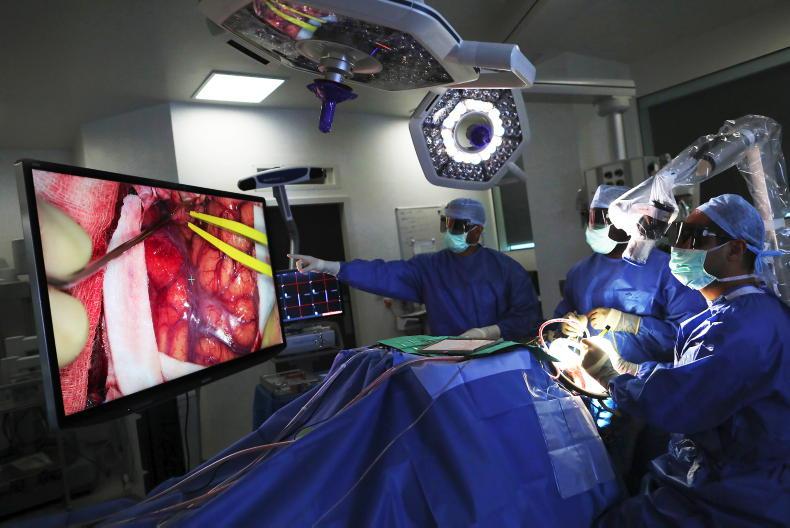
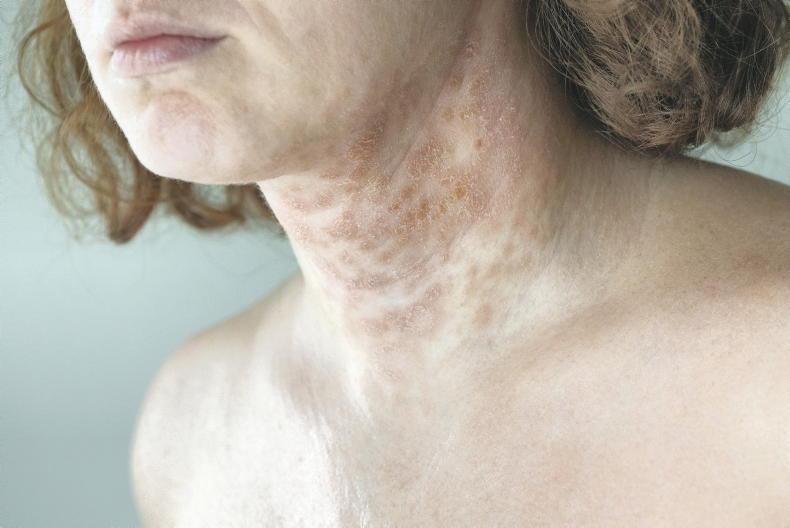

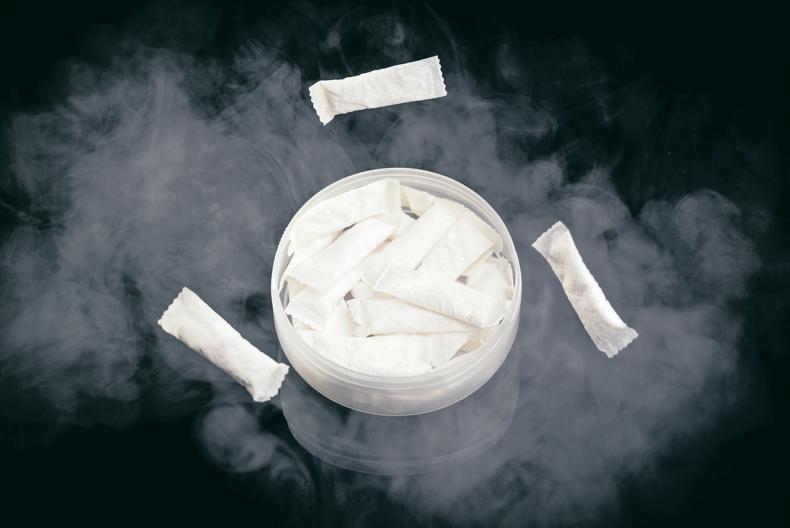
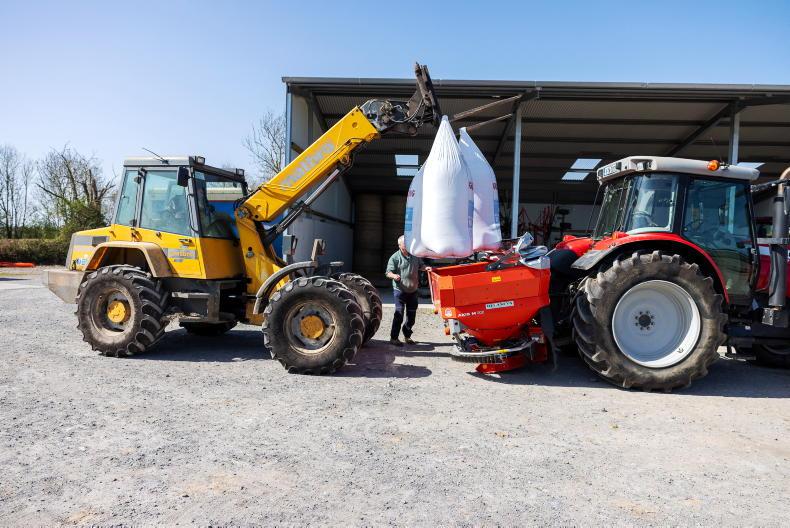
SHARING OPTIONS